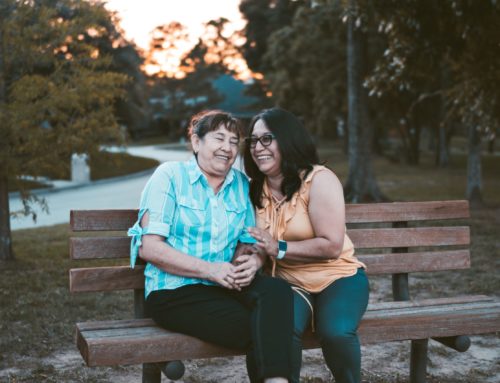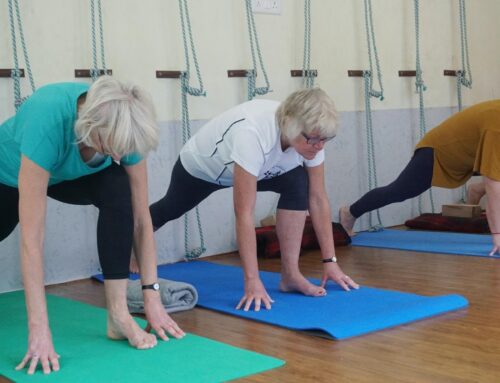It’s Breast Cancer Awareness Month, and the focus for this year’s campaign is raising awareness and importantly taking action. We were lucky to talk to Valion Health client, Val Cullen, about her breast cancer story and her ongoing mission to get more women to screen early and more often.
Here’s how the story goes:
Val lives in Sydney’s beautiful Sutherland Shire with her husband Craig and 3 kids, Juliet, Xavier and Hugo. She has worked at ING for 21 years in a role she loves and spends her spare time at the beach and cooking up a storm with her friends.
Val was diagnosed with breast cancer at 45 after finding a lump on her right breast, which she says she wasn’t too worried about at first.
“I had no risk factors. I don’t drink, smoke, I had my first child before 30, I breastfed 3 kids, there is no family history and I was only 45 years old. I nonetheless made an appointment with my GP.”
Val said her, usually pretty chill, GP fast tracked her for a mammogram, ultrasound and core biopsy the next day, “I just knew it was bad news but it was confirmed in my mind when the imaging staff very kindly bulk billed me, that’s when I burst into tears,” she said.
Val was diagnosed with garden variety (as they call it) oestrogen/progesterone receptor positive breast cancer, which means the cancer feeds off oestrogen and/or progesterone.
“My surgeon advised me that he would remove the lump, I would have radiotherapy and then be on tablets for 10 years. Easy, right? Not quite.”
Val’s 2.5cm lump was removed and following a multi-disciplinary team meeting where specialists, pathologists, nurses etc meet to discuss each woman’s case she was advised she might benefit from chemotherapy. Val signed up for 4 doses of chemo in October last year and says this is when things started getting gnarly.
“Chemo itself did not knock me about too much. And I was not at all bothered about losing my hair. One less thing I had to do in the morning! Heehee! I was still able to exercise and never lost my appetite. But chemo caused my blood to clot and I ended up with 3 blood clots. I was on twice daily injections for 7 months and I am now on oral thinners for another 12 months. That was my chemo gift that keeps on giving.”
Val says she wouldn’t have needed chemotherapy if her lump was detected at 2cm, which would have meant no blood clots either, this is why she encourages women to screen younger (more on that later).
Following 16 rounds of radiation, Val now has monthly injections to prevent her ovaries from producing oestrogen and will take tablets for the next 10-15 years to prevent oestrogen production.
Despite some ongoing treatment, Val is back at work and says her life is mostly back to normal.
“The worst part is the worry about my blood clots, which are gone but I worry about them reforming, like an 80s band!”
We are happy to report that Valion Health played a role in Val’s recovery via the Cancer Support Program, which she accessed through her health insurance.
“To be honest, I was quite sceptical at first. A free service from my health fund? Yeah, right! I thought there would be a catch for sure. I could not have been further from the truth. Every single professional I was lucky enough to meet was absolutely fantastic. All these sessions were conducted via zoom so it was easy to schedule around my other countless appointments.”
Val accessed a tailored support from a range of Valion Health providers, including oncology nurse Belinda, psychologist Rebecca, dietitian Jane and Emma from the exercise physiology team.
“Belinda was a ray of sunshine. Like a very smart and knowledgeable friend that I could debrief with. I love hearing what she had to say and I genuinely felt comforted when we spoke. If something was worrying me and I knew we had an appointment, I felt much more at ease. Plus, she laughed at my jokes!”
While Val already exercised prior to her diagnosis she said working with Emma, the exercise physiologist, helped her tailor her own regime, and she says exercise played a huge role in her treatment and recovery,
“Emma was a wealth of knowledge and was so supportive and encouraging…She also changed my mindset around exercise. I used to not bother exercising if I only had 15 minutes. But she helped me realise that even a 15-minute walk is better than no walk.”
Val says the village of people around her were also instrumental in seeing her through the last 12 months, this includes the friends who helped with the children, brought food and gifts, sent messages, delivered library books and provided support to lighten the load.
A network of ‘Pink Sisters’ was another life raft.
“I gained so much comfort by speaking to women wo have been through what I have been through. And while every woman’s path is different, women who kindly took the time to share their experience and give me advice, or even just listened to me were invaluable.
“I have tried really hard to repay this. I feel it is my duty. I am so happy to be able to give back to newly diagnosed women, though I really wish no woman was ever diagnosed again. Breast cancer is the worst way to meet the best people.”
Val offers this advice for women facing a breast cancer diagnosis:
- listen to the experts and ask as many questions as you feel comfortable asking.
- trust your gut instincts.
- exercise, exercise and exercise. Through chemo, surgery, radiation. Exercise.
- Know that you will get through this. It will feel insurmountable, but you will look back and wish you could tell past you to keep going because there is light at the end of the tunnel.
“And what I want the world to know is that prognosis for breast cancer is vastly improved with early detection. I want women aged 40 and up to have regular mammograms. That is, every 2 years.
“Mammograms saves lives. They can detect a lump long before it is palpable. I want women to be breast aware. Check their breasts every month and never ever dismiss anything unusual. Breast cancer can hurt, or it can not hurt at all. Breast cancer can show up as a nipple discharge, or a drooping nipple, or a redness, or a feeling of heaviness, or puckering. Know your normal and if anything falls outside that, please see your GP.”
“To date, 52 women have had mammograms off the back of me encouraging (ehem nagging!). That gives me such comfort. Breast cancer will impact 1 in 7 women and family history only accounts for 10% of cases.”
Val now has eyes firmly forward, and her mind focused on giving back. As part of her awareness campaign around screening, she plans on wearing variations of the same t-shirt every day for a year!
“On 1 October, the first day of Breast Cancer Awareness Month, I started wearing a t-shirt, which says: ‘Check your boobs, mine tried to kill me’ and on the back ‘mammograms for free from age 40, with the Breastscreen NSW phone number.
“Breast cancer has changed me and being the recipient of so much care from health professionals, I want to do something to give back, this is just the start.”
Virtual Care with Valion Health
Cancer is the most common disease facing Australians today. Treatments such as chemotherapy and radiation therapy can take a toll on your day-to-day life, even after finishing treatment.
That’s why Valion Health developed the Cancer Support Complete Program – to help you maintain your physical and mental wellness and manage side effects such as fatigue.
By joining the program you’ll have the support you need to get back to the activities you enjoy. We offer this program to people with any cancer type at any stage during and after treatment, and work in partnership with your medical team.
Funding for this program is offered through Valion Health partnerships with Australian Private Health Insurers and other funders.




